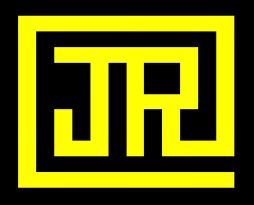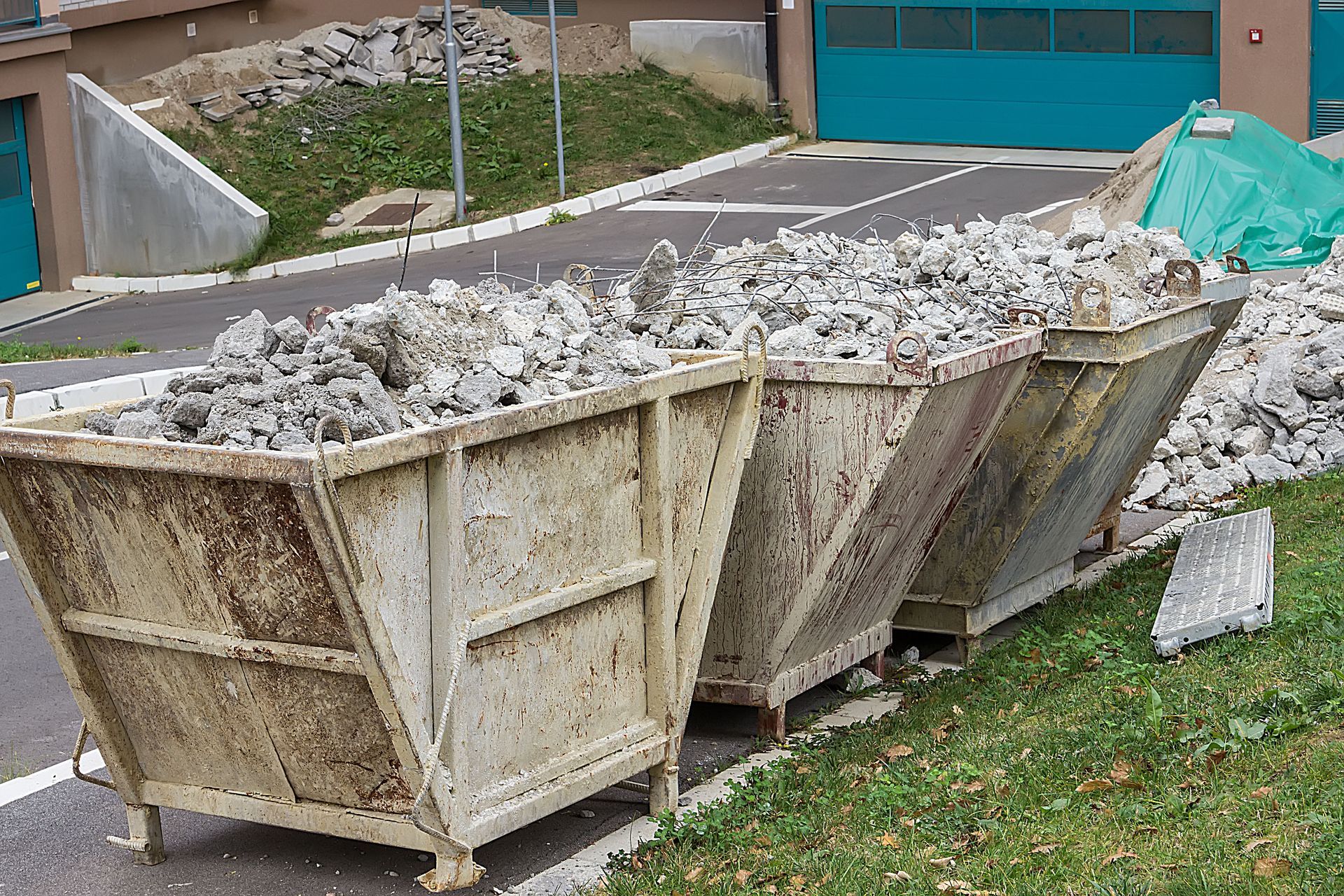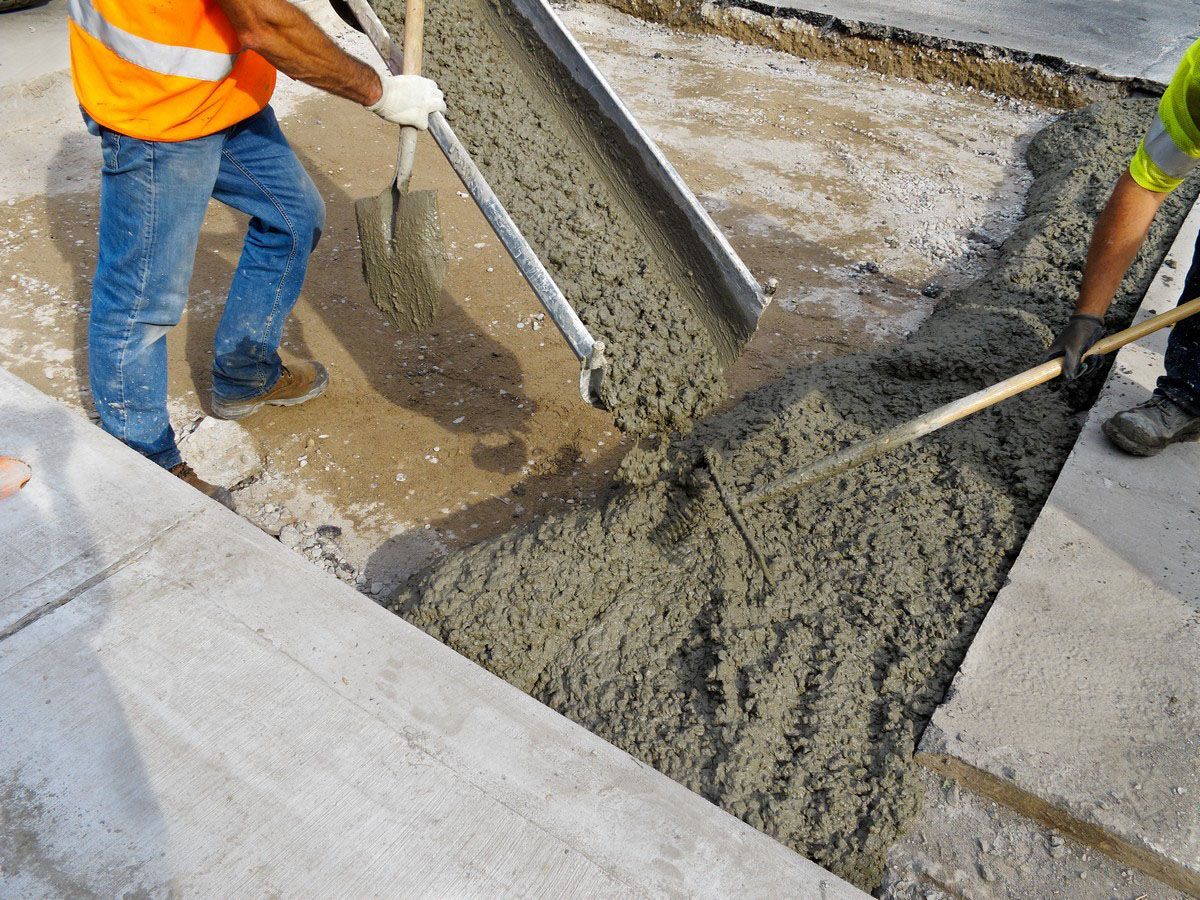November 24, 2025
The concrete industry is entering a new era shaped by innovation, sustainability, and heightened environmental awareness. As communities grow and infrastructure demands expand, the materials we rely on must evolve to support long-term resilience. Concrete, a centuries-old building material, is now at the center of groundbreaking technological advances and modern recycling practices designed to reduce environmental impact. For homeowners, businesses, and municipalities, understanding where concrete is headed allows for smarter planning, better investments, and more sustainable construction choices.
This exploration looks closely at the material's future, how recycling is transforming the industry, and why professionals—including any trusted concrete driveway contractor—are increasingly prioritizing eco-forward solutions. With recycling rates climbing and new technologies emerging each year, the industry is poised for significant change that benefits both builders and the environment.
Rising Demand for Sustainable Concrete Solutions
As sustainability becomes a central concern in construction, concrete manufacturers, builders, and engineers are under increasing pressure to reduce emissions, conserve resources, and extend the lifespan of materials. Modern consumers are becoming more discerning, often requesting environmentally responsible alternatives that still offer durability and strength. This shift has inspired manufacturers to refine formulas, lower carbon output, and experiment with greener production processes.
A knowledgeable concrete driveway contractor will often discuss these innovations with clients because they impact the quality, longevity, and environmental footprint of a project. New formulations incorporate supplemental cementitious materials like fly ash, slag, or silica fume, which not only reduce waste but also improve performance characteristics such as strength and permeability. These refined mixes are more resilient in harsh climates and contribute to long-term sustainability goals.
Advances in Concrete Mix Design and Alternative Aggregates
As research progresses, engineers are gaining a deeper understanding of how concrete behaves at a microscopic level. This has opened the door to advanced mix designs capable of meeting precise performance requirements. High-performance concretes, ultra-high-performance concretes (UHPC), and self-healing concretes are just a few examples of cutting-edge innovations transforming traditional construction.
Self-healing concrete, which uses embedded bacteria or specialized polymers that activate when cracks appear, can greatly reduce maintenance needs and extend a structure's lifespan. In addition, alternative aggregates sourced from recycled materials—such as crushed glass, reclaimed asphalt, or construction debris—are rapidly growing in popularity. These aggregates offer structural reliability while diverting waste from landfills.
A forward-thinking concrete driveway contractor may recommend these technologically enhanced mixes to clients seeking more durable or sustainable solutions. These new materials can withstand heavy loads, weather fluctuations, and freeze-thaw cycles, making them ideal for both residential and commercial applications.
The Power of Recycling and Its Future in Concrete Production
Recycling is one of the most influential trends shaping the future of the concrete industry. Instead of viewing old concrete as waste, recycling plants crush and repurpose it for new construction. This circular approach reduces the demand for natural aggregates, lowers carbon emissions associated with quarrying, and significantly decreases landfill accumulation.
According to EPA, more than 70% of concrete is recycled in developed countries. This remarkable statistic reflects how widespread and effective recycling practices have become. Because concrete is so abundant and universally used, even small increases in recycling efficiency can have substantial environmental benefits.
Homeowners working with a concrete driveway contractor may now request recycled concrete aggregate (RCA) for driveways, walkways, patios, or foundational work. RCA performs similarly to traditional stone, offering strength, uniformity, and durability while contributing to eco-friendly building practices. As recycling technology continues to advance, RCA will likely become a standard component in many future concrete applications.
Reduced Carbon Emissions and Enhanced Energy Efficiency
Concrete production has historically been energy-intensive, particularly during the cement manufacturing stage, where high heat is required. Today, researchers and producers are working to significantly lower emissions through alternative fuels, carbon-capture technologies, and revamped manufacturing processes. Some facilities are experimenting with carbon-cured concrete, a process where carbon dioxide is injected into the mix and mineralized, permanently storing CO2 while enhancing the concrete's strength.
Energy-efficient production methods also allow manufacturers to reduce waste and streamline resource consumption. When a concrete driveway contractor uses these materials in residential construction, clients gain long-lasting surfaces that require fewer repairs and reduce environmental impact over time. The ripple effect of these innovations touches every stage of construction, from production to installation to end-of-life recycling.
Emerging Technologies Transforming Concrete Applications
Technology is reshaping every area of construction, including how concrete is placed, reinforced, and maintained. Innovations such as 3D-printed concrete, robotics, and smart monitoring systems are becoming more prevalent as the industry embraces digital transformation.
3D-printed concrete structures allow for rapid construction with minimal waste, offering new opportunities for affordable housing, disaster-relief shelters, and intricate architectural designs. Sensors embedded within concrete can track structural health in real time, providing early warnings of stress, moisture, or deterioration. These “smart” technologies help engineers and contractors identify potential issues before they escalate, ultimately saving time, money, and resources.
A highly experienced concrete driveway contractor may begin incorporating these technologies into everyday residential work as they become more accessible. Smart concrete driveways or reinforced foundations could soon alert homeowners to freeze damage, soil shifting, or structural weaknesses—improving safety and reducing long-term repair costs.
Shifting Consumer Expectations Toward Eco-Friendly Projects
Modern homeowners are far more eco-conscious than previous generations, often prioritizing sustainability in their renovations and outdoor improvements. From eco-friendly landscaping to energy-efficient home upgrades, environmentally responsible choices are becoming standard practice. This mindset extends naturally to concrete projects.
Consumers want materials that last longer, perform better, and tread lightly on the planet. This shift in awareness encourages contractors to stay informed about the latest innovations and recycling trends. A reputable concrete driveway contractor will often help clients understand the lifecycle of concrete, explain material options, and provide insights into long-term environmental benefits.
As this trend continues, the demand for sustainable materials, recycled aggregates, and high-performance mixes is expected to climb rapidly. That demand will drive further investment in green technologies and improvements in production efficiency, reinforcing the industry's commitment to environmental stewardship.
Resilience and Durability in an Evolving Climate
As weather patterns become more unpredictable, durability has become an essential factor in material selection. Concrete used today must withstand increasingly severe storms, heavy precipitation, temperature extremes, and fluctuating soil conditions. As a result, researchers are refining formulas to resist environmental stressors and reduce cracking, erosion, or moisture intrusion.
For example, permeable concrete allows rainwater to flow through it, reducing runoff and supporting groundwater systems. This is particularly beneficial in areas prone to flooding or drainage issues. Fiber-reinforced concrete adds tensile strength, making it ideal for driveways, foundations, and commercial applications requiring added toughness.
A skilled concrete driveway contractor who understands these evolving conditions can guide clients toward mixes engineered for longevity and resilience. In many cases, choosing the right material means fewer repairs and lower long-term costs.
The Role of Contractors in Driving Sustainable Change
Contractors play a crucial role in shaping the future of sustainable construction. They serve as the link between manufacturers, engineers, and homeowners, bringing innovative materials and techniques into everyday use. When a concrete driveway contractor stays current with industry trends, they are better positioned to recommend environmentally responsible choices to their clients.
Contractors who embrace recycling, reduced-emission mixtures, and advanced concrete technologies not only contribute to a healthier planet but also offer superior results. Their involvement accelerates the adoption of greener practices and supports broader sustainability initiatives across the industry.
Whether upgrading a home, enhancing infrastructure, or planning new developments, choosing modern, sustainable concrete solutions is a meaningful investment in the future. If you're ready to explore eco-forward options for your next project, we invite you to contact us at JR Concrete Construction LLC, where we're committed to delivering durable, innovative results with every job we complete.




